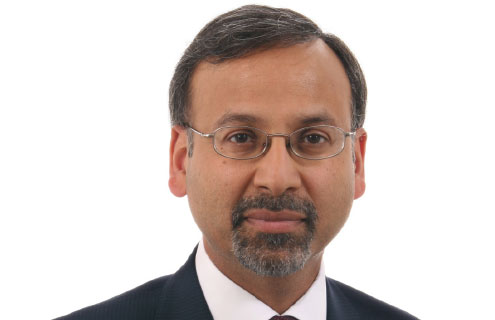SWIFT
Arun Aggarwal previews what we can expect at this year’s SWIFT Business Forum
The forum last year attracted a large turnout—can we expect the same this year?
We’re expecting similar numbers—and cannot actually fit in any more people. It is very positive, and we have obviously struck a chord in terms of what the industry wants. It’s not just the attendees; the other pleasing part of it is the speakers, and we have attracted some really top quality spokesmen and women this year. The Lord Mayor of London, Fiona Woolf, will come and give the opening address, and we move onto a pretty packed agenda for the rest of the day. The overall theme is, ‘doing good business in an era of re-regulation’, which is a slightly tongue-in-cheek title. Last year, regulation was the key theme, and again, regulation is probably number one, two and three on most people’s agendas.
What do you mean by re-regulation?
We went through a period of de-regulation of the financial industry. The fashionable thinking in the eighties was of self-regulation, and I’m not going to place any judgement as to whether that was or wasn’t the right thing to do—there’s always a nuanced answer to this question. You can’t possibly say the twenty years prior to that was perfect.
Eventually we suffered the financial crisis, and there is no question that it was due in part to a swing towards de-regulation, or self-regulation, and so now we’re seeing a shift the other way. The worry always is, are we going to see the pendulum swing too far, into excessive and intrusive regulation? One hopes that regulators, industry and politicians alike have learnt something from the past, and that we won’t get into the same situation—or go too far towards the other extreme.
But the prevalent thinking is that we do need far more stringent regulation across the board. One of the things that we are highlighting is that in this era, you need to not only deal with this regulation, but it is vital to be able to run a good and profitable business as well. A lot of re-regulation is addressing a lot of the reputational damage that the industry is facing. Doing good business is not only making profit, it is also doing business that is perceived to be contributing to the wider economy, and to society.
A number of the big players have been very keen to support this. One of the most prominent examples of that has been from Barclays Bank, which has gone into a major programme—way beyond compliance—to change the look, feel and culture of its firm.
What is the specific direction of the conference?
Within this theme, we are exploring what are the increased regulations that are taking place, and their implications for the industry. We have a stream focussing on financial crime, with a big panel discussion featuring top speakers such as Tracey McDermott, who heads up financial crime at the Financial Conduct Authority, the head of financial crime at the British Bankers’ Association, Justine Walker, our own CEO, and the head of global compliance at HSBC.
We then lead on with a few more sessions on financial crime. We have a stream that looks at market infrastructures, and one of the things that we are highlighting there is that market infrastructures came through the financial crisis very well.
They were seen to be a part of the industry that actually delivered on their promises. A lot of the regulation supports and increases their role going forward, and there is clearly a lot more emphasis on them and the bigger part that they are playing. We also have a stream on the investment community, picking up on big development staking place in the securities markets—TARGET2-Securities is one of the biggest changes, from a European perspective.
Then we are moving further into the implications for the investment management and pension fund communities. We then have one more stream looking at core traditional payments, and also developments in shadow banking. It is a particularly interesting topic, because there are those that feel that—what with increasing regulation on traditional players, are they going to lose out to the players somewhat on the periphery.



